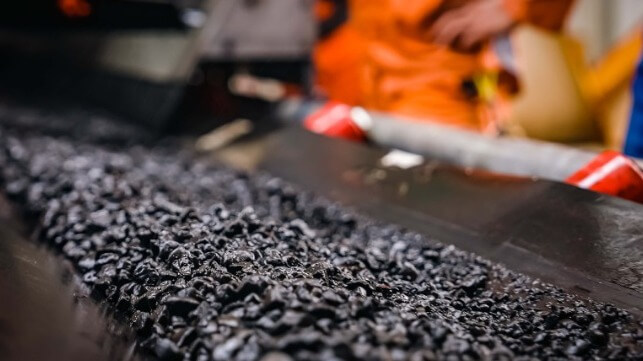Trump Order Puts Deep Sea Mining on Path to Commercialization

On Thursday, President Donald Trump signed a much-anticipated executive order that will set up an American permitting process for deep sea mining in international waters, beyond the U.S. outer continental shelf.
The order directs the Commerce Department to expedite a sovereign permitting process for mining under the Deep Seabed Hard Mineral Resources Act, an obscure statute from the 1980s. The Cold War-era law provides a pathway to unilateral resource recovery on the high seas, bypassing the UN's International Seabed Authority (ISA), which has jurisdiction under UNCLOS.
The richest areas for polymetallic nodules - the only technologically mature mining target - are far outside of U.S. Outer Continental Shelf, primarily in the Pacific between Hawaii and Mexico. The nodules in the Clarion Clipperton Zone contain roughly 28 percent manganese; 1.3 percent nickel; 1.1 percent copper; and 0.2 percent cobalt, all strategically valuable elements. The nodules also contain trace amounts of rare earth metals, which are critically important to defense production.
Canadian mining firm The Metals Company has a years-long interest in this region, and it worked closely with the White House in the months leading up to the announcement. It is the only Western firm with equipment capable of performing the work in the immediate term, and is expected to apply for a U.S. mining permit, with support from Swiss contractor Allseas and Korean-built drillship Hidden Gem. The Metals Company's stock soared at 1100 hours Thursday, and was up 44 percent at closing.
ISA has taken a cautious approach to licensing, and is weighing the economic benefits against scientists' warnings of large-scale and long-lasting environmental damage. However, the U.S. is not a signatory to UNCLOS, and the Trump administration is motivated to move quickly to "restore American dominance in offshore critical minerals and resources."
More than three dozen nations, including China, Russia, the UK, France and India, have already condemned the U.S. license plan and registered their support for the ISA. The ISA's secretary-general, Leticia Carvalho, implied in a statement that the order was inconsistent with UNCLOS. “The International Seabed Authority remains the sole body with the legal mandate to regulate activities in the area, and its legitimacy stems directly from international law,” Carvalho said.
Beyond high-seas permitting, Trump's order also directs the Department of the Interior to set up a similar permit process for the U.S. OCS (under the Outer Continental Shelf Lands Act). The order also directs a variety of government resources towards helping private companies extract resources. These include the possibility of federal mapping services to find minerals; funding support from federal development banks; and possible government purchasing of the minerals produced, using the National Defense Stockpile.
Federal purchasing may be an important tool to create a market. Many leading companies (including Apple) have already pledged not to buy metals from deep-sea mining for their supply chain, citing the potential environmental impact. It is also possible that the sale of the metals may be challenged legally, according to environmental lawyer Duncan Currie, who compared unilateral high seas mining to illegal fishing.
"When a fishing vessel violates fishing regulations, it faces consequences, including not being able to unload its catch in various ports. Its catch also cannot be sold in several countries, like the US or the European Union. Similar things would apply to metals obtained in violation of UNCLOS," Currie told Dialogue Earth.
Competition for strategic seabed resources could also accelerate without a uniform set of rules. China - which already has a controversial history of UNCLOS compliance - has invested substantially in deep sea mining technology, and has a strategic interest as the world's leading producer of critical minerals.
